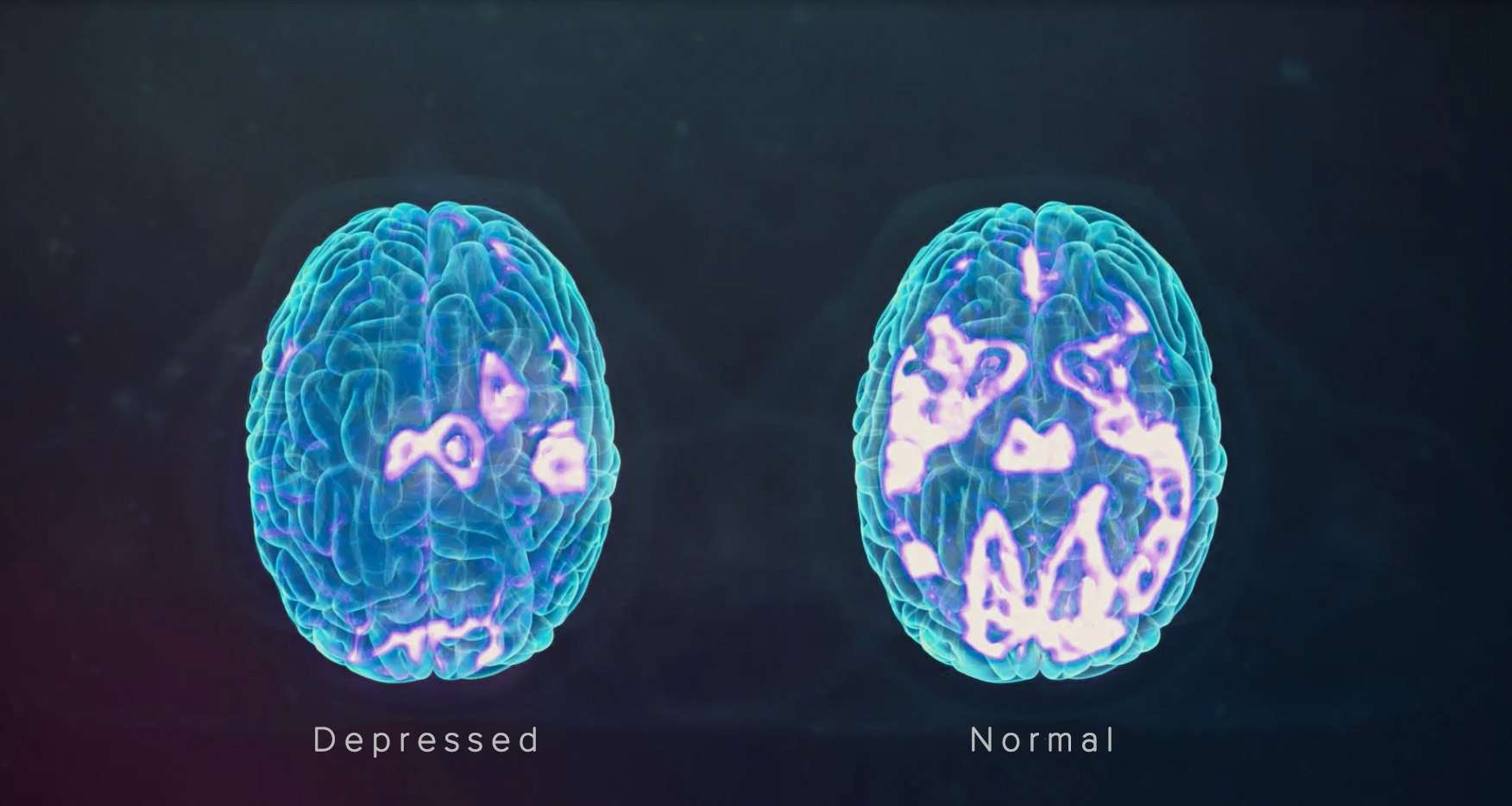TMS Therapy for Depression: Clinically Proven Treatment at American TMS Clinics, Scottsdale, AZ
Clinically Proven Treatment at American TMS Clinics, Scottsdale, AZ
Transcranial Magnetic Stimulation (TMS) therapy for Major Depressive Disorder (MDD) is what American TMS Clinics in Scottsdale, AZ, do best. They offer full TMS therapy for depression, which has been supported by a lot of scientific research. Our advanced Brain Scan treatment, BsTMS®, works with this method to make therapy fit each person's needs.

TMS Therapy for Depression: Understanding the Mechanism and Benefits
Transcranial Magnetic Stimulation (TMS) therapy is an FDA-approved way to treat Major Depressive Disorder (MDD). It works by using magnetic fields to stimulate neurones in specific parts of the brain that control mood. This new way of doing things is notable for many patient-friendly features:
Non-Invasive Nature
Minimal Side Effects
No Sedation Required
Quick and Well-Tolerated
Often Covered by Insurance
Ready For A TMS Consultation?
In-Depth Research Analysis: Proven Efficacy and Safety of TMS Therapy for Depression
Clinically Proven Effectiveness
Long Term Benefits
Recognized Safety Profile
BEGIN YOUR RECOVERY TODAY!
Step towards reclaiming your life with our support. Unveil the possibilities with our therapies in Scottsdale, AZ. Call to unfold your path to wellness.

Advanced Personalization with BsTMS®
BsTMS® makes standard TMS therapy more effective by tailoring treatment plans to each person's brainwaves. This makes it a very targeted treatment for MDD.
The FDA has approved TMS therapy as a proven treatment for Major Depressive Disorder, which we provide at American TMS Clinics. Our skilled staff is committed to providing this safe and effective treatment, which helps patients make big steps towards better mental health.
Treatment Experience
Convenience of Treatment
Our TMS sessions last about 30 minutes and don’t break up the day, so patients can easily fit treatment into their schedules.
Comfort and Ease
As many as 90% of patients who have tried TMS therapy say that their sessions were painless and comfortable.
Navigating Insurance Coverage for TMS Therapy
We know that for many patients, trying to figure out how to pay for their treatment can be stressful. Helping people figure out how their insurance covers TMS therapy is one way we deal with this problem. There are certain rules that many insurance plans must follow when covering TMS because it is an FDA-approved treatment for Major Depressive Disorder (MDD).
Insurance Verification and Assistance
Guidance Through the Pre-Authorization Process
Dedicated Support for Billing and Claims

TMS Therapy Insurance Support
We are dedicated to helping patients. If a patient has any questions about whether or not their insurance covers TMS therapy, they should feel free to contact us. Everyone who can benefit from this life-changing treatment should be able to get it, and we are committed to making sure that our patients can easily and clearly handle the financial parts of their care.
Commitment to Excellence in Patient Care
Discover the potential of TMS Therapy for Depression at American TMS Clinics in Phoenix, AZ. Contact us to explore how this scientifically validated treatment can be part of your path to mental wellness.
At American TMS Clinics, our commitment extends beyond clinical excellence to include compassionate, patient-centered care, ensuring each individual's journey with depression is met with understanding and expert support.
FAQ
Transcranial Magnetic Stimulation (TMS) is a non-invasive procedure that uses magnetic fields to stimulate nerve cells in the brain, primarily used to treat depression and other mental health conditions. It involves placing a magnetic coil near the scalp to deliver focused magnetic pulses to specific brain regions.
Yes, Transcranial Magnetic Stimulation (TMS) is FDA-approved for the treatment of Major Depressive Disorder. The FDA granted approval after reviewing extensive clinical trials and data demonstrating the safety and efficacy of TMS for this condition. Additionally, certain TMS devices have also received FDA clearance for treating Obsessive-Compulsive Disorder (OCD) and migraine. The approval for these conditions is a testament to the effectiveness of TMS as a non-invasive treatment option. However, it's important to note that the use of TMS for other conditions may still be considered off-label or experimental and should be discussed with a healthcare professional.
TMS is typically recommended for patients with major depressive disorder who have not responded to traditional antidepressants. Eligibility is determined based on medical history, the severity of the condition, and prior treatment responses.
Most patients do not find TMS therapy painful. Some may experience mild discomfort or a tapping sensation on the scalp during treatment, which often decreases over time.
Many insurance plans now recognize the effectiveness of TMS therapy and provide coverage for conditions like major depressive disorder. The extent of coverage can vary based on the specific insurance provider, the patient's individual plan, and the medical necessity as determined by a healthcare professional. It's important for patients to directly contact their insurance company or work with the TMS clinic's insurance specialists to understand their coverage, including deductibles, copays, and any specific requirements for pre-authorization.
Transcranial Magnetic Stimulation (TMS) is recognized for its safety, with minimal long-term side effects reported. Common side effects like scalp discomfort or headache are usually mild and occur during or shortly after treatment sessions. Long-term side effects are rare, making TMS a well-tolerated option for patients, especially when compared to other treatments like Electroconvulsive Therapy (ECT) or certain medications that can have more significant systemic or cognitive side effects. Ongoing research continues to affirm the safety of TMS, with studies indicating no significant adverse effects over extended follow-up periods.
The FDA's approval of TMS for treating major depressive disorder underscores its safety profile. This approval, based on rigorous clinical trials, reinforces TMS as a safe option with a low risk of long-term side effects. As with any medical treatment, patients should consult healthcare providers to understand the risks and benefits based on their individual health needs.
